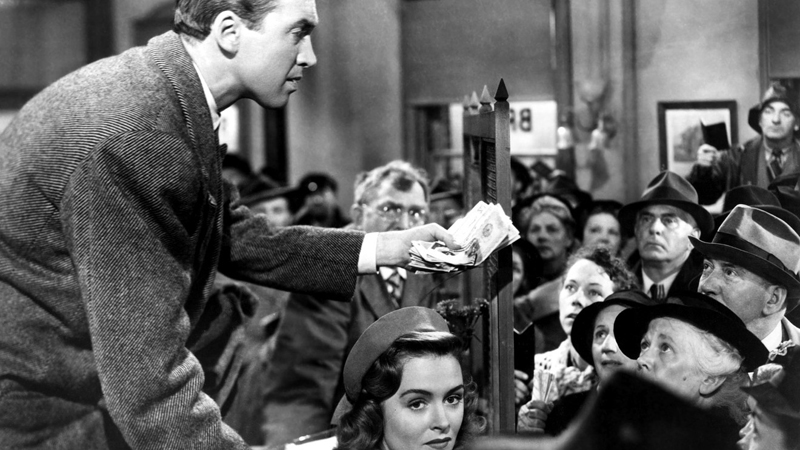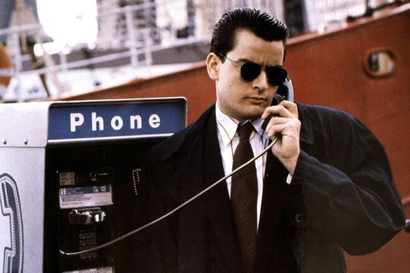
Small investors bid up the share price of largest U.S. movie theater circuit AMC Entertainment to heights that baffled Wall Street professionals. These investors embraced the nickname of “apes” because they are unsophisticated in investing but group movement made them strong like gorillas.
What comes next is that high-flying AMC will have to deliver profits that justify its lofty stock market capitalization of $30 billion (value of its shares at current trading); AMC’s market cap was just a half a billion dollars in late 2020 before the stock trading frenzy erupted unexpectedly like a wildfire.
Its share price ignited after online stock chat boards, especially Reddit.com, and its WallStreetBets posse of investors, built a buzz for a handful of stocks — AMC, video game retailer GameStop and some others. Those companies became known as “meme stocks” because of the buying surge online by small investors placing memes their online posts (typically humorous still images or videos captioned to provide an alternate message that is meant to be shared). Meme investors seem to be an “affinity group” (to use movie marketing jargon) that like technology and are socially active.
The wave of buying by small buyers caused heavy losses for professional investors shorting AMC stock. “Shorts” bet a stock price will fall but suffered massive losses earlier this year when AMC stock soared, lifted by the meme surge. Wall Street pros call small buyers “retail” investors.
It’s like a plot ripped from 1946 movie “It’s a Wonderful Life” in which residents of a small town rally around a local banker portrayed by Jimmy Stewart (movie pictured). Meme investors rescued AMC.

AMC’s share languished between $2-5 in 2020, a meager price justified because the pandemic meant its theaters were closed and because of AMC’s crushing debt, which stood at $10.3 billion at the start of 2020. But powered by meme investors, AMC’s share price hit $12 in May and recently consistently traded above $55.
Going forward, AMC’s fate rests in its phalanx of apes, who are now its biggest shareholders. One meme investor posted a cheeky comment after an AMC corporate announcement: “Fearless leader, we trust your process! Guide us to the moon.”
But the theater circuit is struggling financially in its basic business, despite the surge in its stock. AMC reported a net loss of $4.6 billion in 2020, hammered by pandemic, and was burning through cash at a rate of $125 million per month at the height of the Covid-19 shutdown.

AMC’s former parent is a Chinese company that overpaid buying the circuit for $2.6 billion in 2012 and probably can’t believe its recent good luck. Dalian Wanda later spun out AMC in an initial public stock offering in 2013 and AMC traded as an independent company on the New York Stock Exchange.
When the Reddit investors bid up AMC share price, Dalian Wanda bailed out weeks ago selling all its AMC stock for upwards of $3 billion, fleeing with an indicated profit on its initial acquisition. AMC also used the runup to issue more stock bringing money to its corporate coffers, raising $1.2 billion in recent months. That will help pare debt and provide a capital cushion. Unfortunately, creating new stock as AMC has done dilutes existing shareholders, though the meme investing crowd doesn’t seem to mind.
Still, it’s a very worrisome sign that AMC chose to dilute existing shareholders and insider Dalian Wanda took-the-money-and-ran by liquidating its AMC shares.
Wall Street regulators are examining if the meme rush is illegal market manipulation, but that would seem difficult to prove.
The apes may like to go to theaters and thus jumped on AMC, but the movie exhibition grapples with tough economics. Theaters are dependent on film distributors for product and distributors grind down theaters in dividing ticket-sale revenue.
“Despite growing heft, theaters are keeping a smaller slice of box office,” says the third edition of business/academic book “Marketing to Moviegoers”. “It is estimated that theaters pay distributors 53 percent to 55 percent of box office for films, which is called the rentals. Historically, it was a 50/50 split but tilted in favor of distributors in recent years, leaving theaters to keep less than half of each box-office dollar.”
Coupled with that, audiences increasingly demanding top-quality facilities, which are expensive to build. Theaters do enjoy high profit margins on food/beverages but that unshared income is not enough to float what’s called the exhibition business — cinema.

It’s also odd meme investors embraced No. 1 circuit AMC, when No. 3 circuit Cinemark is considered the best-run exhibitor. The Plano, Texas-based Cinemark generates 20 percent of U.S. boxoffice from 11 percent of the nation’s screens. Cinemark is publicity traded, has a $2.6 billion stock-market capitalization, shoulders relatively lower debt, operates with less competition domestically and has some overseas theaters. Cinemark has 531 theatres with 5,958 screens worldwide and booked $3.3 billion in revenue for 2019 — a normalized year.
In comparison, AMC weighs in with $5.5 billion in 2019 normalized revenue. The Leawood, Kansas-based AMC has 950 locations with 10,500 screens worldwide, and that previously-mentioned $30 billion stock market capitalization.
Prior to the bounce from ape investors, AMC was thought to be risking bankruptcy because of its heavy debt. Any bankruptcy would be likely be a reorganization wiping out shareholders (now dominated by meme investors) by transferring ownership to creditors who would likely keep theaters going. AMC is not worth much in a liquidation because its bricks-and-mortar theater real estate has meager value when stores and shopping malls are closing because of the Amazon-fueled mail-order boom. Hence, AMC is worth more to any new owners in its current configuration.
The memes are focused on upside rather than potential downside. A post by one ape investor on YahooFinance said, “When every media outlet is going out of [its] way to talk down your investment, yet you’re holding the highest performing stock year-to-date, you’re on to something special.”
Related content:
- Barron’s: AMC Stock Is Up 3,100%. Should You Buy or Sell?
- Capital.com: AMC Stock Predictions: Too Late for Investors to Jump In?
Leave a Reply